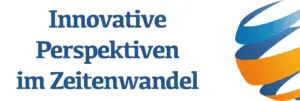After years of stagnation, the Turkish Government is pushing the Democratization of the country forward by introducing a new package of minority rights.
Almost two weeks ago now, on the 30th of September 2013, Turkish Prime Minister Recep Tayyip Erdoğan announced a long-awaited set of democratic reforms, known as the “Democracy Package”. As well as lifting a 90-year-old, secular law that bans the wearing of head scarves by women in public office or civil service, the reforms also promise greater freedoms to the Kurdish and other minorities in Turkey. These measures, hoped to advance the Kurdish peace process and cultural integration in Turkey, include allowing the Kurdish letters “q”, “w” and “x” as well as allowing private schools to teach in Kurdish. Furthermore, Kurdish villages are now permitted to use their original Kurdish names, and elections can now be conducted in languages other than Turkish.Before these reforms, school children in Turkey were asked to repeat a nationalistic oath twice weekly, claiming: “I am a Turk”, a practice now seen as unfair towards non-Turkish minorities and therefore abolished.
While the reforms brought about through Prime Minister Erdoğans democracy package are cautiously welcomed by the European community and Turkish liberals, they are viewed with a level of uncertainty. The co-chairwoman of the pro-Kurdish Peace and Democracy Party (BDP), Gultan Kışanak, wasquoted by Reuters as saying that the measures introduced are not enough to overcome the obstacles still present in the peace process.
Here in the West, many see the package as an attempt by the Prime Minister to turn a new leaf after his reaction to the anti-government protests in Turkey this past summer, which many voices in European politics as well as the European liberal media deemed draconian. However, here too there is a level of unease about the tangibility of the reforms. The British Liberal Democrat member of European Parliament, Andrew Duff, remarked that the package is welcomed, however it is “-not the major leap forward that European Union and Turkish liberals were hoping for”.
Hannes Swoboda, the president of the Socialists and Democrats group in the European Parliament, commented that “the proof of the pudding is in the eating”. He found it unfortunate the the package did not come with a time line, which would have helped ensure the enforcement of the measures it promises.
Some even say that, far from being indicative of any democratic progress in Turkey, the package is simply a plan to win the upcoming general elections. However, Erdoğan promises: “This is not the first package, and it will not be the last”, so there is hope that, rather than being a publicity stunt to increase the PM’s support, the package is the beginning of an on-going process of democratization in Turkey. While the practical success of these reforms remains to be seen, at least symbolically it is certainly a big step in the right direction, away from a strict and nationalist system of rule and towards the democratic government that society demands.
______________________________________________________
Switch here to the German-Version



